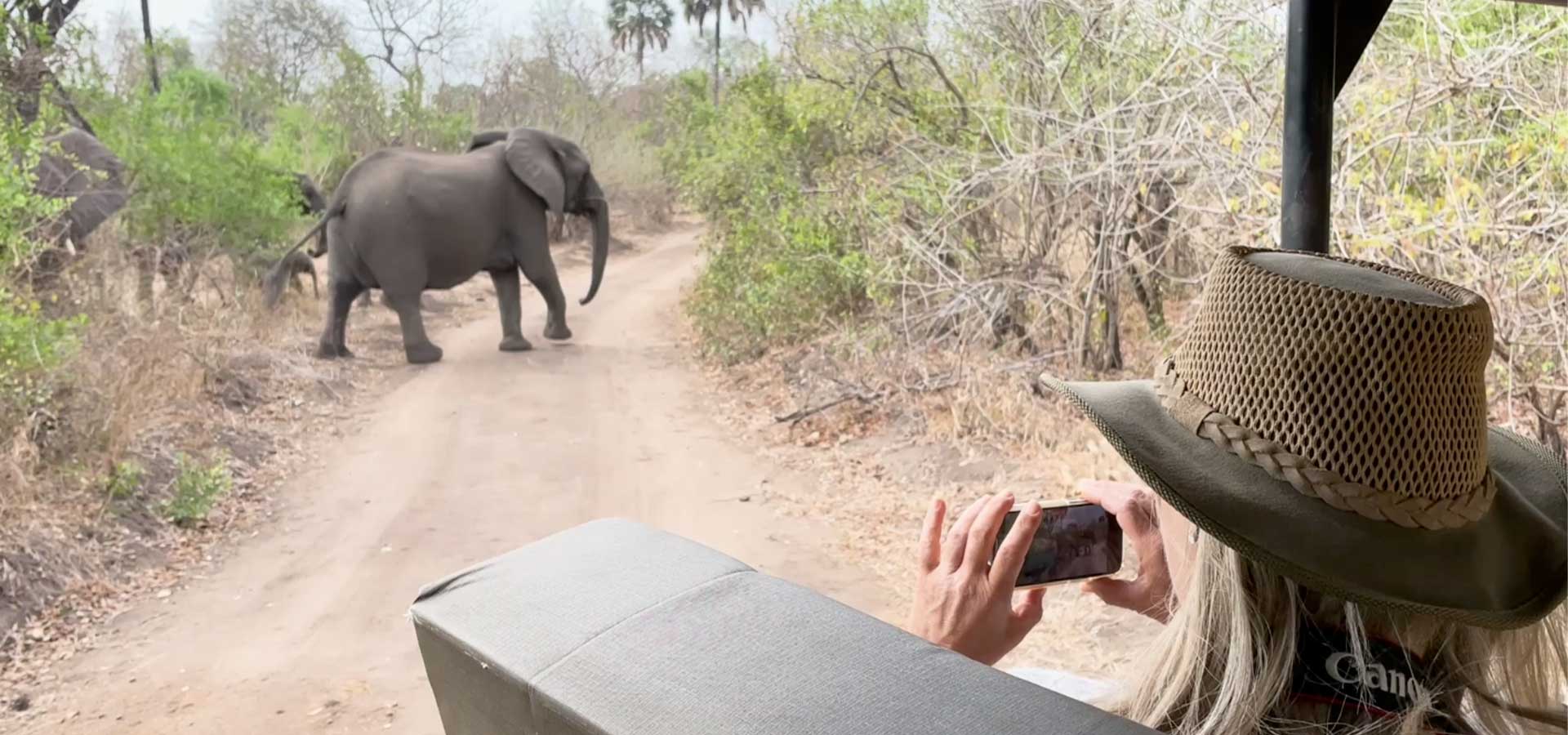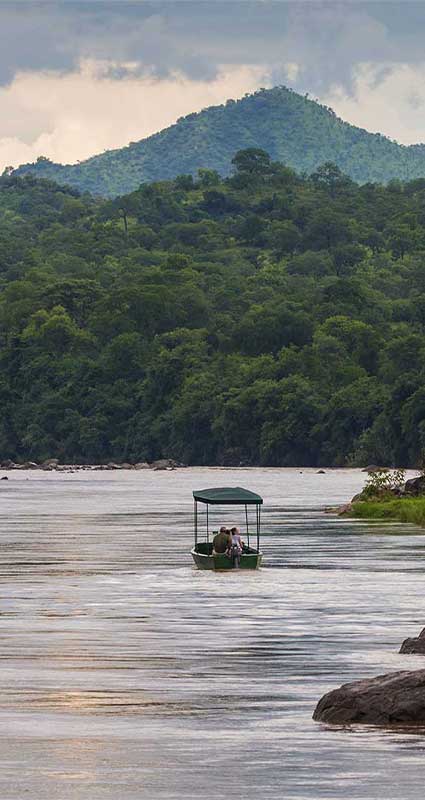SAFARI CAMPS for responsible travellers
The preferred booking platform for lodges & bush camps that offer tangible, measurable benefits for conservation & communities
The 700km² (70,000-hectare) Majete Wildlife Reserve in southwestern Malawi is one of Africa’s greatest conservation success stories and a premier Big-5 safari destination.
READ MORE about Majete Wildlife Reserve
Expert tip: Expect more wildlife encounters in the northeast of the park and a wilderness experience further south
Information about Majete
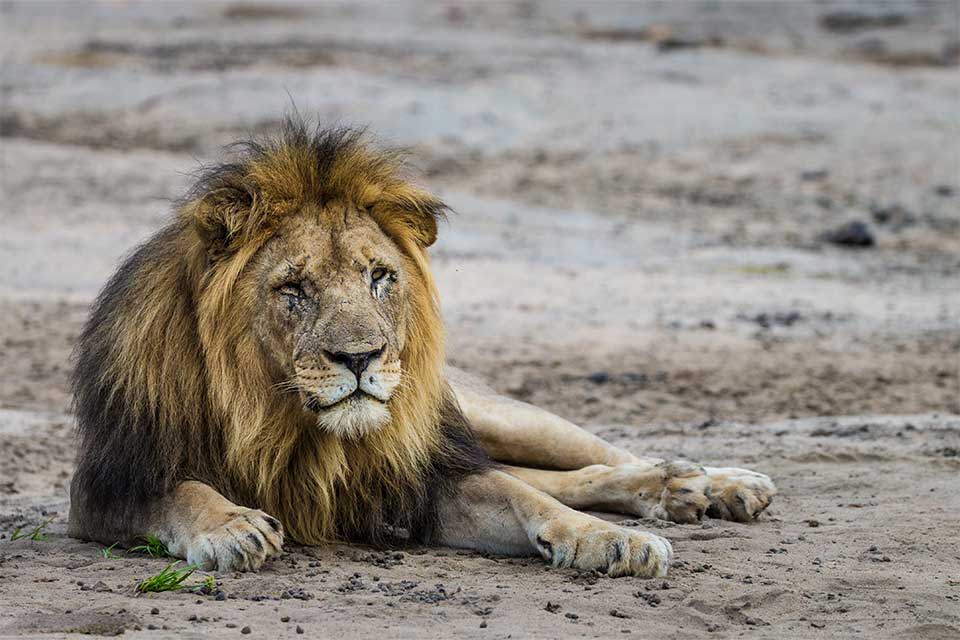
Majete wildlife
Big 5 - black rhino, elephant, lion, leopard and buffalo.
Cheetah, African wild dog (painted wolf), hyena, sable and roan antelope, hippopotamus, crocodile, giraffe, Lichtenstein’s hartebeest, eland, Sharpe’s grysbok, suni and commonly seen species such as warthog, impala, zebra, wildebeest, waterbuck, common duiker, kudu, nyala and bushbuck.
Smaller species include side-striped jackal, honey badger, aardvark, aardwolf, pangolin and several species of mongoose.
Birds - over 300 bird species – including African skimmer, rock pratincole, Arnot’s and boulder chats, racket-tailed roller, Pel’s fishing owl, cuckoo hawk, and Böhm's bee-eater.
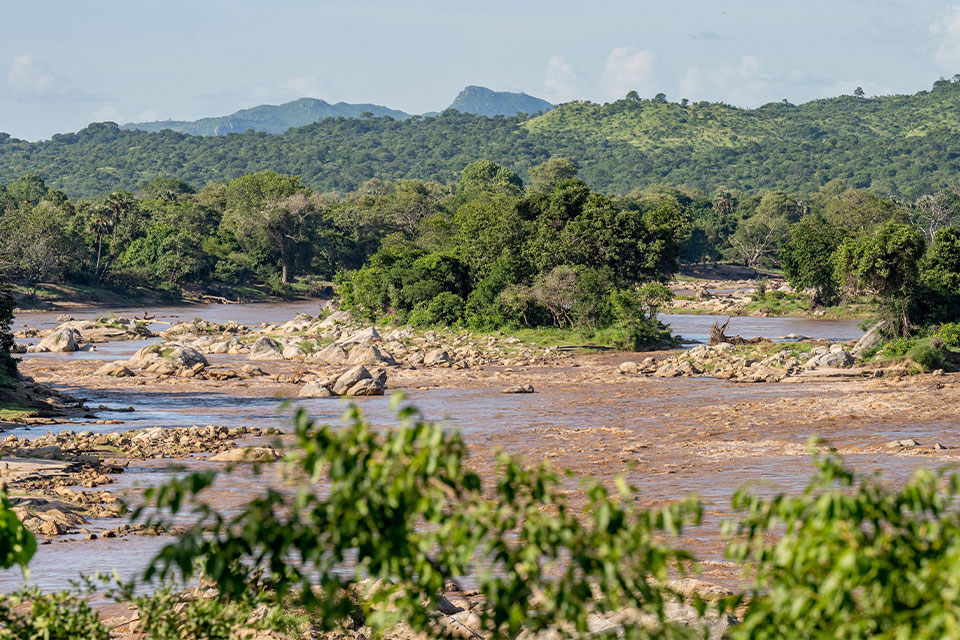
Majete seasons & landscapes
Open all year round;
Rainy season - November to March - hot and humid. The bushveld is green and thick, making game viewing more difficult. Many species have babies (easy targets for predators), and migrating birds are here to breed;
Dry season - April to October- milder temperatures (but September and October can be very hot) and little or no rain. The bushveld is brown and dry, making it easier to see wildlife.
The lower Shire River valley is renowned for its towering granite hills, open savannahs and beautiful miombo woodlands. Two giant rivers – the gentle Mkulumadzi River and the mighty Shire River – converge in Majete on their journey from Lake Malawi further north to join the Zambezi River and, finally, the Indian Ocean.
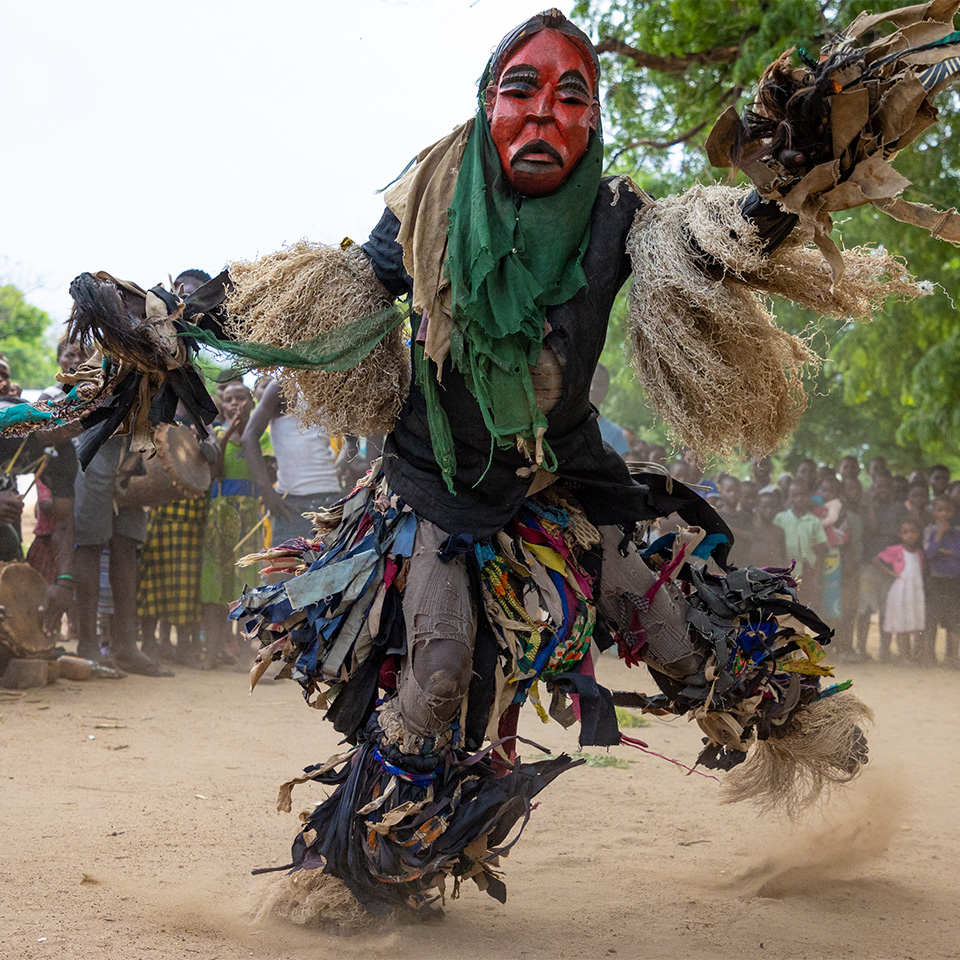
What to do in Majete
Majete offers a variety of activities, including:
morning and afternoon game drives - self-drive or guided;
Nakamba Hide sleep-out (only from Game Capture Camp);
community guide (accompanying in your private car) - including bird specialists;
community visit and cultural dancing performance (4-8 guests per group); and
explore the far reaches of the reserve – the areas of Pwadzi and Pende – on specialised game drives
Note that some activities are included in your daily rate, and others are optional extras. Refer to each lodge and campsite's 'Safari activities' section for details.
Guests can enjoy meals at the Mwembezi Restaurant and use its adjacent swimming pool. The restaurant offers breakfast and lunch menus, and dinners can be had if arranged in advance. It is situated at the reserve’s main entrance and has a small shop where basic travel amenities and curios can be bought.
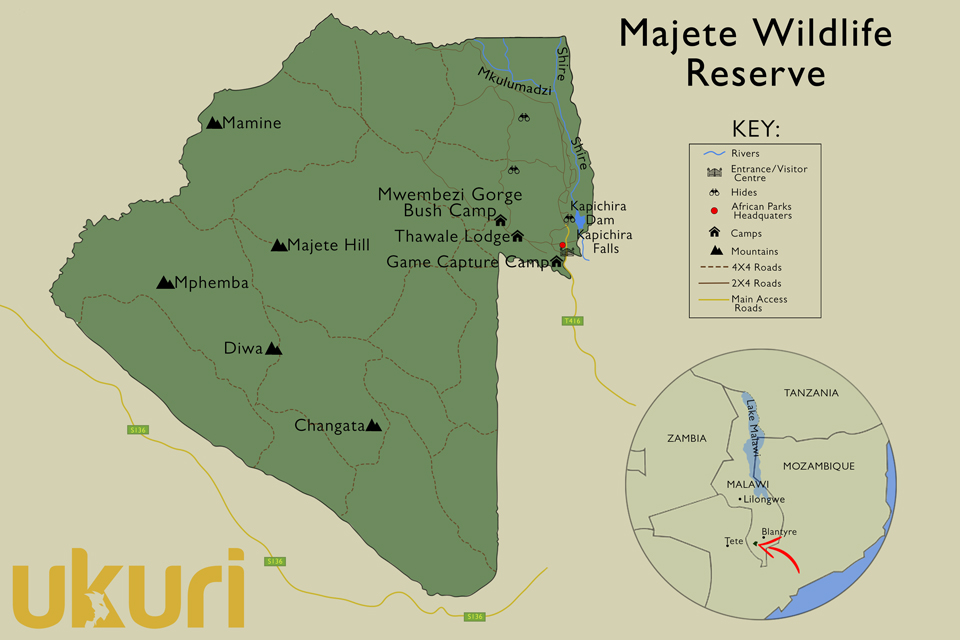
How to get to Majete
Nearest city + major airport: Blantyre 70km / up to 2 hours by road.
By road: vehicles are available for hire in Blantyre. From Blantyre, take the road to Chikhwawa and follow the signs to Majete Wildlife Reserve. In Chikhwawa, turn right at the T-junction. The all-season dirt road from Chikhwawa Boma to the park is about 20 km and suitable for all vehicle types although we recommend a 4x4 vehicle during the wet months. Journey length +/- 1.5-2 hours.
By air: Majete has an airstrip, and charters can be booked with a local provider. Prior landing permission is required.

Health essentials
Malaria area: Yes
Majete is a malaria area. The biggest threat is during the rainy season (November to March), but appropriate precautions are advised throughout the year. Cover your arms, legs and feet from dusk to dawn and use mosquito repellent. Please consult your travel doctor about malaria prophylaxis.
Yellow fever area: No
Malawi is not a yellow fever area. Vaccination is required for travellers arriving from countries with a risk for yellow fever virus transmission. Please consult your travel doctor before travelling for relevant updates.
Water
Water at Majete is from boreholes and is safe to drink, but bottled water is available at the camps.
Medical emergencies
Majete is a remote area - please ensure you have evacuation insurance in case of medical emergencies. African Parks utilises the following emergency evacuation service: SATIB24 (Nyasa Express Charter = Air Ambulance).
✔️ Vested communities ✔️ Responsible & sustainable
100% of tourism revenue earned by African Parks goes to conservation and local communities
Your safari to Majete will make a difference for local people
Visiting the African Parks camps in Majete is the most direct way to support local communities because these camps help boost:
the local economy by creating jobs and economic opportunities via tourism and infrastructure projects (including schools, health clinics and safe roads), smart agriculture and small enterprises such as beekeeping;
health and well-being via health clinics and malaria prevention;
education and upskilling via scholarship programmes and technical skills development in cell phone/computer repair and information technology.
READ ABOUT the many African Parks community-based projects at Majete
Your safari to Majete will help conservation
Majete’s inspirational story of resurgence and restoration commenced in 2003 when African Parks assumed management of a ravaged reserve devoid of wildlife - in partnership with the Department of National Parks and Wildlife. After years of conservation efforts and wildlife reintroductions, Majete is now a thriving Big 5 wildlife haven and one of Malawi’s best safari tourism assets. So successful has this rejuvenation been that Majete now supplies other areas with wildlife.
READ ABOUT
Information about Malawi
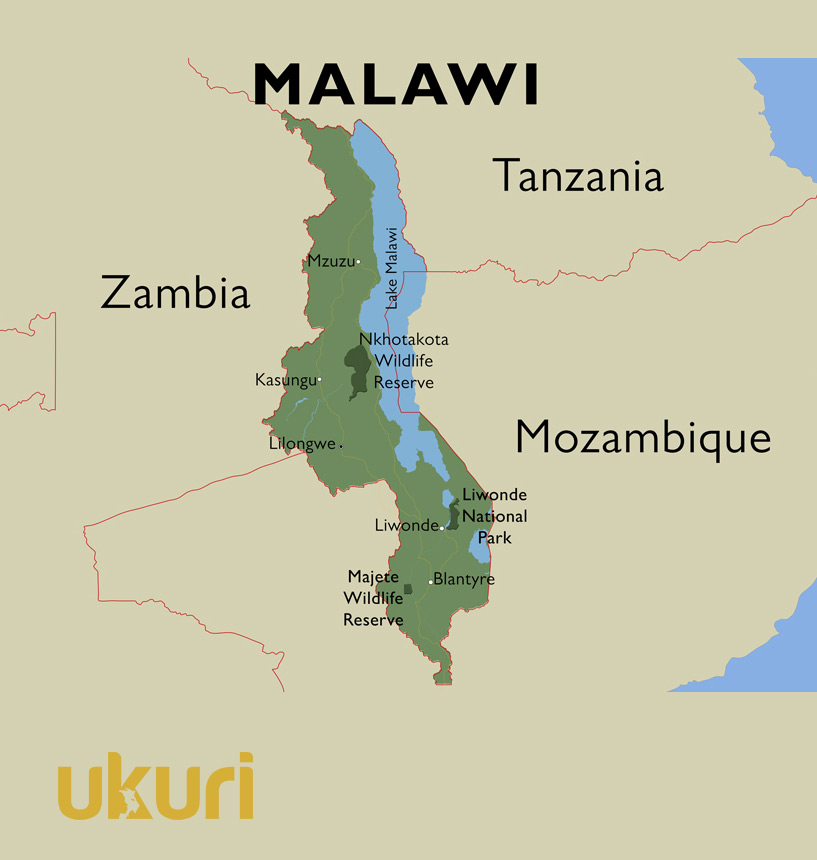
Key Malawi facts + map
Tourist hubs Lilongwe (capital city) + Blantyre.
Languages English + Chichewa (learn a few key phrases).
Time zone GMT + 2 hours.
Currency Malawian Kwacha. Exchange bureaus are available in Lilongwe and Blantyre. Credit Card facilities are increasingly available but still not common. ATMs are available in most major towns around Malawi.
Visas Enter your details here for visa and other requirements.
Plugs Type G plugs (three rectangular pins in a triangular pattern). 230V and 50Hz.
Power Malawi is subject to regular power failures - pack a torch and headlamp.
Mobile phones SIM cards can be purchased cheaply in Lilongwe, Blantyre and large towns. Malawi has very good phone coverage and internet coverage BUT internet speed is very slow.
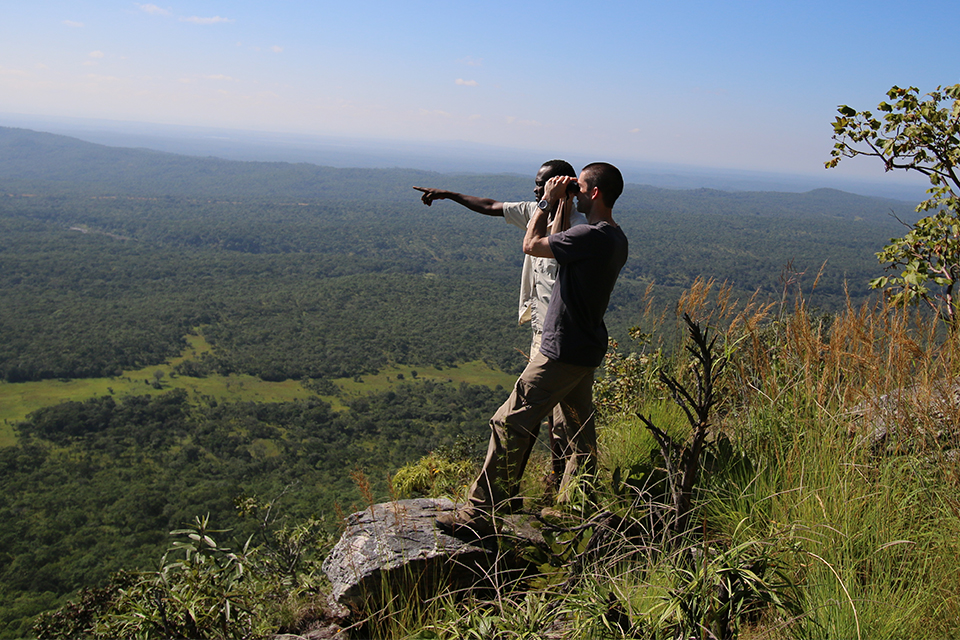
Travel highlights
Lake Malawi
Lake Malawi is the fifth largest freshwater lake in the world and a popular inland beach destination as a finale to top off that exhilarating wildlife safari.
Majete Wildlife Reserve & Liwonde National Park
Majete and Liwonde are two of Africa’s greatest conservation success stories and premier Big-5 safari destinations for responsible travellers.
Nkhotakota Wildlife Reserve
Nkhotakota Wildlife Reserve is the oldest and largest reserve in Malawi and is on the way to becoming the wildlife haven it used to be.
Nyika Plateau & National Park
Nyika National Park is Malawi's largest national park and is popular with birdwatchers, wilderness hikers and mountain bikers.
